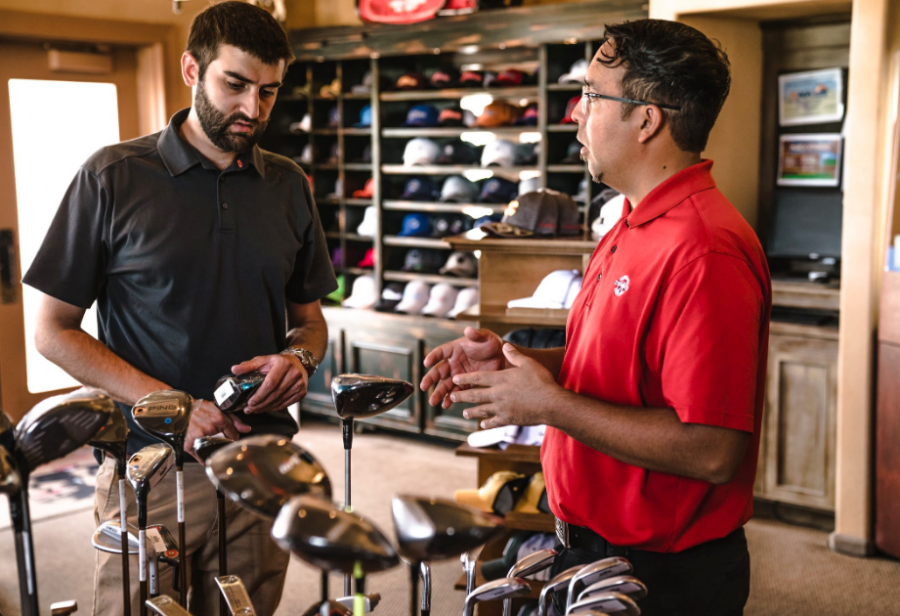A career in sales is supposed to be lucrative and fulfilling, not frustrating. Good salespeople consistently close deals and increase their earnings, developing wide networks of happy customers along the way.
Why, then, do so many salespeople struggle to live out the professional success of their dreams? Drive, training, persistence, and empathy all impact sales success, but one factor stands out above the rest: quality products.
Don’t believe the hype that a good salesperson can sell anything. Customers today are more cautious about what, where, and how they buy. According to The ROBO Economy, a sales report from Bazaarvoice, 82 percent of smartphone users look up products online before they make in-store purchases. If they see a lot of negative reviews, they’ll drop the product and move on — regardless of how charming a salesperson might be.
For anyone trying to make a living in sales, this new digital reality means product quality is more important than ever. Buyers are wary of bad deals, and today, they have all the resources they need to sniff them out. Salespeople looking for dependable, scalable incomes have to be cautious about which companies and products they choose to support.
Use this process to determine whether a product is worth selling:
1. Act like a buyer.
Would you choose this brand over others? It’s easy to talk yourself into preferring your supplier’s product, but it’s another thing to convince a person who has better options elsewhere.
Look at general review sites to see how comparable products stack up. If the product is more niche, check out industry-specific review sites to see how the public perceives the available options.
“When you believe in the products and love them yourself, that comes across in a way that is much more authentic than if you didn’t have any connection,” says Mari Coyle, director of wine of ONEHOPE Wine. “Our wine is fantastic, made by a team of highly accredited winemakers based in Napa. In addition to that, every bottle supports a charitable cause, so the salesperson’s authentic story becomes part of the company story.” Coyle says people can sense whether a salesperson genuinely likes what she’s selling.
2. Practice pitching to a tough crowd.
Practicing in the mirror might help you maintain eye contact, but when it comes to overcoming objections, it’s better to work with a partner.
Ask people in your network or social circle to help you test a prospective pitch. Encourage them not to hold back. You’re not trying to “win” this deal — you’re trying to determine if the product is worth advocating for.
After a few rounds of practice, review your notes and think about how the conversations went. Did you feel like you were forced into an indefensible position based on a flaw in the product? Don’t get bogged down by personal preferences — some of the people you pitch won’t have any interest in the product, regardless of the brand behind it.
3. Look at the current sales team.
The best way to see if a product is worth selling is to look at the people already selling it. Are they successful and happy? Have they been selling the product for several years or just a few months? Does the brand have a small number of successful sellers, a large team of middling sellers, or another mix?
Strong products attract strong salespeople. No one wants to waste time and energy generating demand for a product that has none. If the product is good, the team should be excited to sell it and visibly engaged with the target audience.
Check out company reviews on Glassdoor to see what the salespeople say. When salespeople talk about high earning potential and empowerment, that’s a plus. When they talk about frustrations and silence from leadership, they could just be bad apples — or they could be on to something.
4. Evaluate the competition.
If consumers want to buy something, odds are good that more than one company fulfills that need. Look at competing products and brands in the space to determine which ones are most popular. Does your prospective product own most of the market? If not, does it have a loyal fanbase or a differentiating factor?
Your product doesn’t have to be the biggest name in the market to be successful. The size of the market determines the sales potential. A product that only owns 5 percent of a $10 billion market, for instance, offers far more potential than a product that owns 90 percent of a $10 million market.
Just as there are a few unscrupulous salespeople in the world, there are some companies that make bad products and swindle honest sellers into hawking junk. Don’t get tricked into selling a bad product for peanuts when you could be living the high life. Before you accept a new sales opportunity, consider whether the quality of the product deserves your loyalty.

















